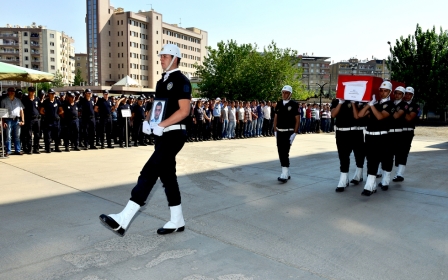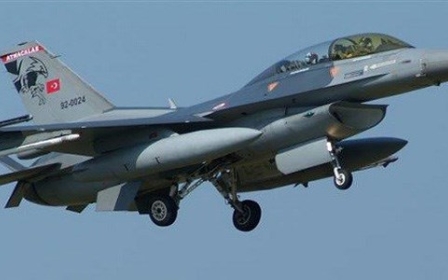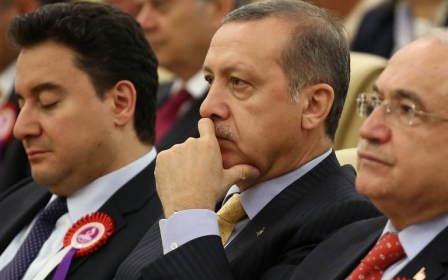US denies report of agreement with Turkey over Syrian 'safe zone'

The US State Department denied reports on Tuesday that the US has agreed to a "safe zone" in northern Syria with Turkey.
Earlier on Tuesday, CNN Turk had quoted Foreign Ministry Undersecretary Feridun Sinirlioglu saying that the two countries had agreed on terms for the zone, including a specific 98km by 45km area to be patrolled by the Free Syrian Army.
If members of the Islamic State (IS) group or Kurdish fighters entered the zone, US and Turkish forces would hit them, CNN Turk quoted Sinirlioglu as saying.
In an interview that also aired on Tuesday, Turkish Prime Minister Ahmet Davutoglu told the BBC’s Jeremy Bowen that the country would make another push for a no-fly zone and would work with the US to create a "safe area" for Syrian refugees.
But State Department spokesman Mark Toner told reporters that there is "no agreement on some kind of zone," Reuters reported.
Toner said he hadn't seen Sinirlioglu's comments and could not address them.
"We've been pretty clear from the podium and elsewhere saying there's no zone, no safe haven," Reuters quoted Toner as saying. "What we're talking about is a sustained effort to drive ISIL out of the region."
Sinirlioglu’s comments and the State Department denial of a zone came as reports have emerged that Turkey gave the US only a 10 minute warning before it bombed Kurdistan Worker's Party (PKK) locations in northern Iraq in early July.
"A Turkish officer came into the CAOC (Air and Space Operations Centre), and announced that the strike would begin in 10 minutes and he needed all allied jets flying above Iraq to move south of Mosul immediately,” an anonymous military source told Fox News.
"We were outraged," the source said.
Middle East Eye propose une couverture et une analyse indépendantes et incomparables du Moyen-Orient, de l’Afrique du Nord et d’autres régions du monde. Pour en savoir plus sur la reprise de ce contenu et les frais qui s’appliquent, veuillez remplir ce formulaire [en anglais]. Pour en savoir plus sur MEE, cliquez ici [en anglais].




